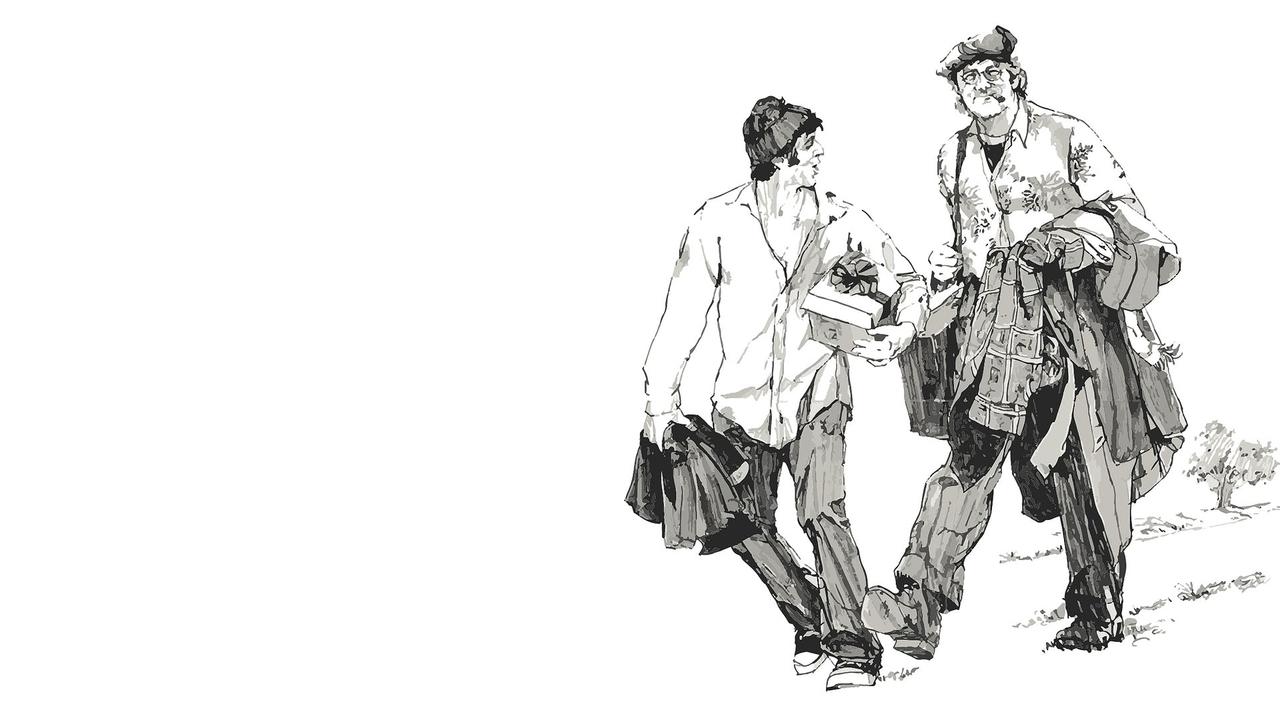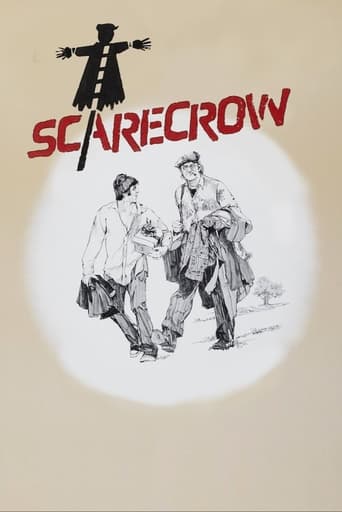

Strictly average movie
... View MoreJust perfect...
... View MoreExcellent, a Must See
... View MoreThe joyful confection is coated in a sparkly gloss, bright enough to gleam from the darkest, most cynical corners.
... View MoreMax Millan (Gene Hackman) is an angry ex-con. Francis Lionel "Lion" Delbuchi (Al Pacino) is a childish ex-sailor. They meet on the road hitching rides. Max is unfriendly at first but after hours of not catching a ride, they become road companions. Max has a plan to open a car wash in Pittsburg. Lion is going to Detroit to see his estranged wife Annie after 5 years and his kid for the first time. He refuses to call her ahead of time.This is a lesser-known team-up of these two great American actors. There is no doubt that it's absolutely fascinating to watch these guys go to work during their energetic younger days. It has the grim existence of the back roads of America and a free-flowing acting sensibility. It does ramble on and on but it's never dull. In the end, their charisma never lets the movie get away from them. The scene with Annie and Lion on the phone is electric. This is a definite hidden gem.
... View MoreI liked the story about scarecrows, it gave resonance to the title of the movie. Lion's (Al Pacino) insistence that they're actually intended to make crows laugh instead of being scared was something I thought about for a while. Between the two principal characters, I think we might have witnessed both versions. Lion found himself scared or bewildered much of the time while partnering up with hitchhiking comrade Max (Gene Hackman), who's reckless attitude toward life echoed the laughter of crows in response to his often violent outbursts and bouts of forced solitude.The fountain scene near the end of the story turned out to be a harrowing harbinger of Lion's catatonic state, coming on the heels of his former gal Annie (Penelope Allen) telling him that their real live son was never born. It was that harsh and mean spirited lie that pushed Lion over the edge, but did you notice? - it was a statue of a lion that Francis clung to when he cracked. It made me wonder if that was just an inadvertent coincidence or whether the scene was specifically planned that way.The conflicted resolution of the story is reminiscent of 1969's "Midnight Cowboy", reminding the viewer that life often doesn't present happy endings. Max's round trip ticket conveyed the idea that he would be back to look in on his road buddy, but one is left with the impression that Lion's condition was more despairing than hopeful. I'd like to think the car wash idea eventually came about, but somehow I have my doubts.
... View MoreSome American directors have always been admired more outside the borders of USA. They include genuine 'auteurs' such as Martin Scorsese, David Lynch, Tim Burton, Spike Lee, Stanley Kubrick, Samuel Fuller, Paul Schrader and Jerry Schatzberg. All these people have made their mark in Europe too especially in France, the birthplace of cinema where their films are admired by both old and young alike. Jerry Schatzberg achieved considerable artistic success at Cannes in 1973 when Scarecrow won 'Grand Prix' jointly with 'The Hireling' directed by Alan Bridges. His film 'Scarecrow' can be classified as a road movie about two buddies whose contrasting personality traits transform them into adorable losers. It is an American film with a large amount of European cinema aesthetics. The unique thing about 'Scarecrow' is that it remains very faithful in its presentation of troubled times in which it is set. It is set in 1970s, a period of hopelessness for American people as due to the aftermath of recession, economic stagnation made the lives of ordinary Americans difficult. It is in such desolate times that two drifters Max and Francis strike up a very odd friendship. These roles are played with utmost perfection by Gene Hackman and Al Pacino. Lastly, Scarecrow will continue to influence a whole new generation of movie watchers as it is the first American film which dared to show that even tough guys are capable of cracking due to adverse situations in life.
... View MoreHaving already made two New Hollywood classics—'Puzzle of a Downfall Child' (1970) and 'The Panic in Needle Park' (1971)—Jerry Schatzberg delivered again with 'Scarecrow', a compelling road-buddy movie starring Gene Hackman as Max Millan and Al Pacino as Francis Lionel "Lion" Delbuchi. Millan and Delbuchi, both misfits, meet on a lonely California road while hitchhiking and subsequently become friends, would-be business partners, and traveling companions. Recently released from a six-year stretch in San Quentin, the paranoid and pugnacious Max plans to travel to Pittsburgh and open a car wash with earnings saved from prison labor. The mild-mannered Lion, an ex-sailor, counters the world's hostility by playing the fool and is dubbed "Scarecrow" by Max. While Max's ambitions are more or less pragmatic, Lion's motivations are essentially emotional; he has no other plans than to travel to Detroit to give his young child (whom he has never seen) a birthday present—and possibly reconcile with the wife he deserted five years before. After various adventures, including an idyllic interlude with Max's sister and a lady friend and a nightmarish stint in a Nevada work farm, Max and Lion make it to Detroit but Lion is rebuffed by his former wife and told (falsely) that the child she was pregnant with when he left died at birth. Unhinged by the news, Lion subsequently grabs a little boy off the street and proceeds to take him into a massive public fountain (actually Scott Fountain on Belle Isle in Detroit) for purposes that are not at all clear. In the ensuing chaos, Max rescues the boy but Lion falls into a catatonic state from which he will likely never recover. In the end, Max (the allegorical figure for Mind) has no choice but to leave the vegetative Lion (the allegorical figure for Heart) on a gurney in a Detroit psychiatric hospital and to continue on to Pittsburgh by himself. Thus, the film ends in male martyrdom and emotional sclerosis, suggesting that commitment to family is often impossible to sustain and, once abandoned, cannot be resuscitated. This is blamed on women: creatures who are unforgiving, mean, and treacherous; they destroy male homo-social idylls, forcing men to go it alone. Vilmos Zsigmond's gorgeous cinematography and the excellent performances rendered by two of the greatest actors of the modern era cannot obscure what is essentially a celebration of male self-pity. It won the Golden Palm at Cannes and other foreign awards but was a resounding commercial failure—simply too depressing for American tastes. VHS (1992); DVD (2005).
... View More